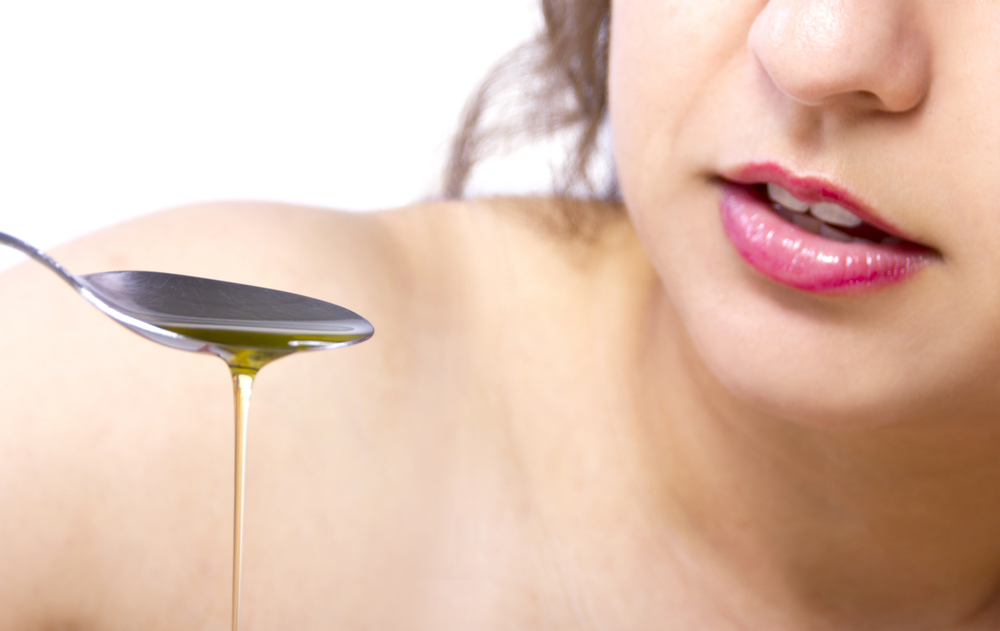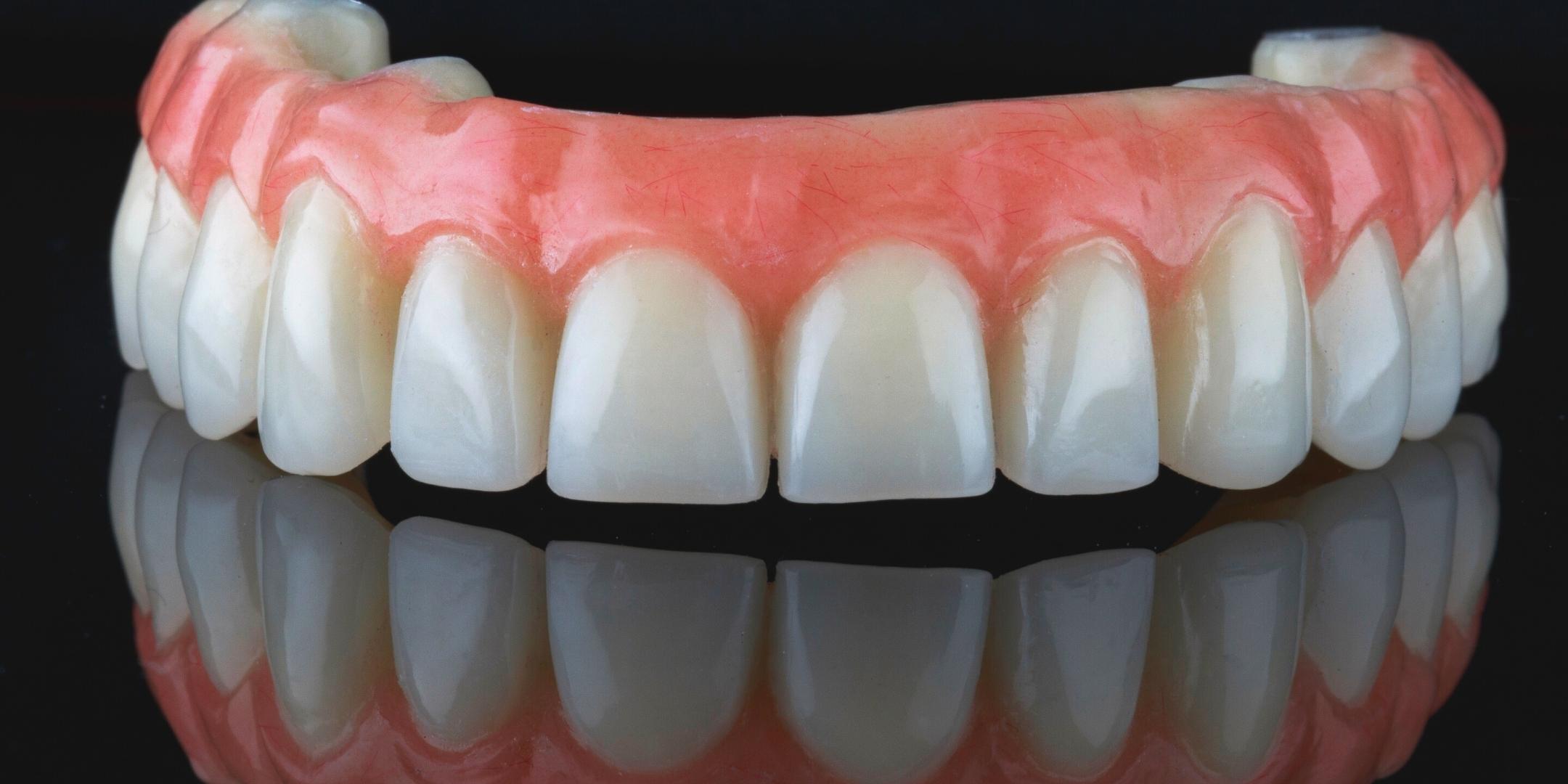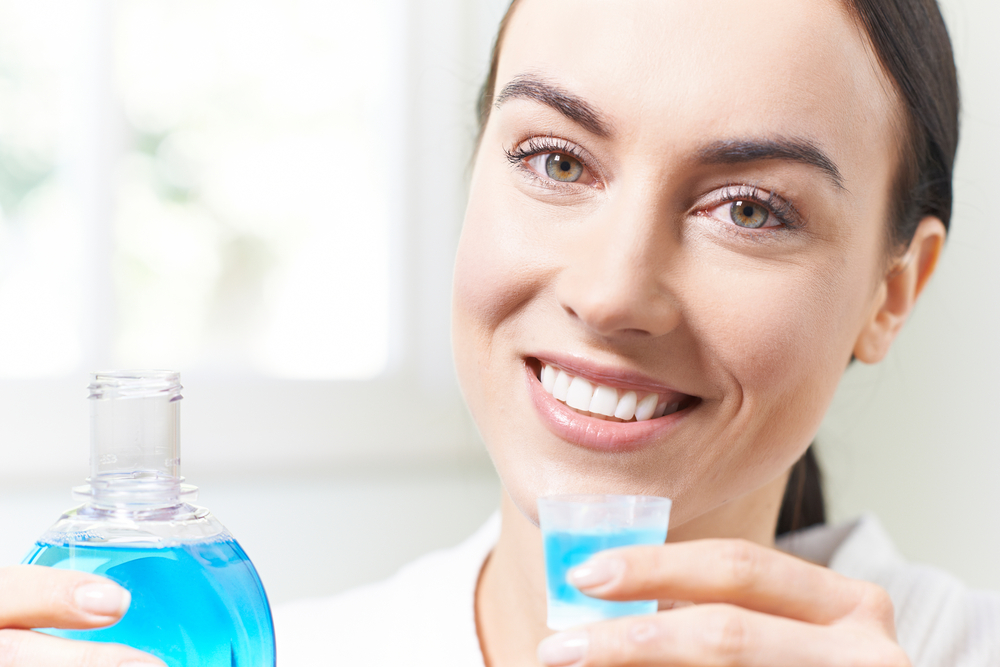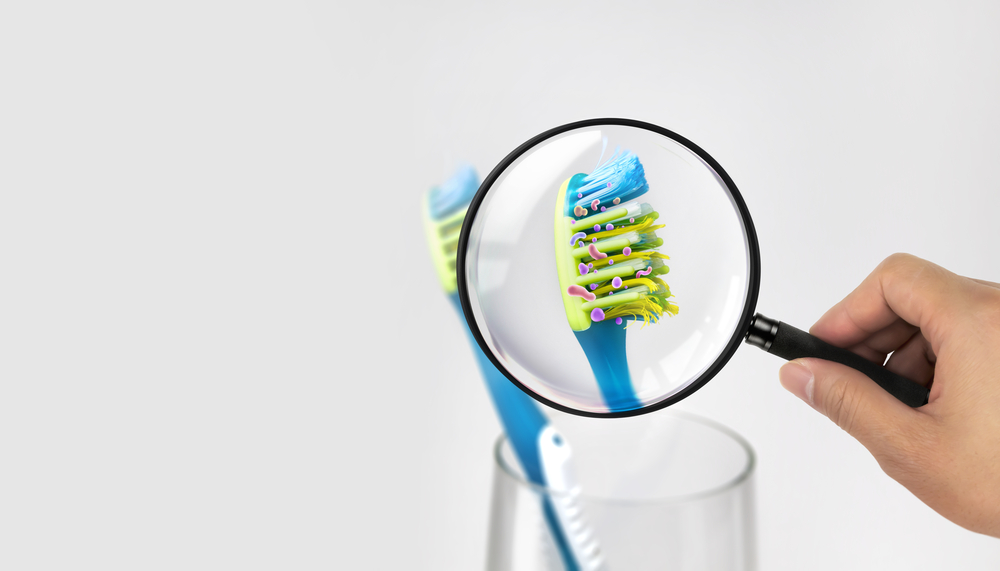- Oil pulling or swishing—the practice of swishing oil in the mouth for better oral health—is one of the most controversial oral hygiene practices today.
- Proponents claim it can do anything from dissolve plaque to combat tooth sensitivity to help with weight loss.
- Dental professionals disagree: the American Dental Association (ADA) and other health organizations warn against this practice.
- In general, oil pulling is considered safe as long as it doesn’t replace regular ADA-recommended oral health practices.
These days, it seems like oil is the cure for everything: high cholesterol, weight gain, stretch marks, and even brittle nails. According to some wellness experts, it can even help boost your overall health and cure such illnesses as cancer, asthma, and diabetes. But instead of cooking with it, they recommend you swish it in your mouth in a practice called “oil pulling.”
Oil pulling (or gandusha) is a principle facet of one of the world’s oldest medical systems—Ayurvedic medicine. This holistic, natural system dates back more than 3,000 years to ancient India. In general, Ayurvedic medicine focuses on improving overall health with herbal compounds, minerals, and special diets. The theory is that the oil kills harmful pathogens such as bacteria, viruses, and fungi—leaving behind an environment that’s inhospitable to the growth of bacteria and plaque.
Overall, dental professionals are at odds about whether or not swishing oil can cure dental hygiene woes. Some say oil pulling works to ward off tooth decay, stains, and gum disease, while others file it away under the category of “old wives’ tale.”
Anyone with the desire to reap the possible health benefits of oil pulling should take this practice with a grain of salt, as there are many doubters. Let’s take a closer look at this technique to see if it is worth integrating into your dental health routine.
The Benefits of Oil Pulling
Proponents of oil pulling claim it does wonders for oral hygiene and overall health. Here are some of the more commonly-reported benefits:
- Prevents tooth decay
- Prevents bleeding gums
- Eliminates bad breath
- Strengthens teeth, gums, and jaw
- Whitens teeth
- Reduces tooth pain
- Reduces tooth sensitivity
- Increases energy
- Detoxifies the body
- Reduces headaches
- Clears blemishes
The Art of Oil Pulling
The most commonly recommended oil for pulling is coconut oil—specifically organic, cold-pressed extra-virgin coconut oil. However sesame, sunflower, and olive oil—and even some essential oils—are other choices.
Sesame oil is usually chosen over coconut oil because it has a smoother consistency and is less likely to trigger a gag reflex, unlike the thick consistency of coconut oil.
Coconut oil is proven to be effective in removing certain oral bacteria. One study shows that coconut oil is as effective as mouthwash in reducing the Streptococcus mutans bacteria count normally found in the mouth, a significant contributor to tooth decay. Coconut oil also contains a high concentration of lauric acid, an anti-inflammatory that also reduces gingivitis and plaque build-up.
If you intend to integrate this practice into your dental health routine, use the following tips.
- Swish as soon as you wake up in the morning—before brushing, eating, or using a conventional mouthwash. Morning is the best time, as there’s more bacteria in your mouth. During the night, saliva production slows down, resulting in a reduction of its mouth-cleansing properties.
- Most people recommend swishing the oil for about a minute, while others claim that swishing for up to 20 minutes yields the best results.
- After spitting out the oil, rinse your mouth with warm water, and brush as usual.
Does It Work?
Like any new or unconventional dental health practice, the ADA has issued a word of caution when it comes to oil pulling. The association claims there are no reliable scientific studies to show oil pulling is beneficial to oral hygiene or that it whitens teeth and reduces cavities.
On the other hand, several studies indicate that oil pulling can lead to healthy teeth. In one study, researchers found sesame oil had a significant effect on plaque-induced gingivitis and bacteria. Another study found similar results using coconut oil, with successful results in decreasing plaque after one week, with even greater benefits when the practice was used for longer.
But what about whitening? Whether oil pulling works for teeth whitening is another controversial topic among supporters. Dr. Mark Burhenne of Ask the Dentist claims that, while oil pulling might remove some teeth staining, it’s about as effective as swishing plain water. On the other hand, some people believe that oil is better than water for whitening because plaque is fat-soluble—it can only dissolve in fats, like the ones found in oils.
Oil Pulling Side Effects
There are currently no serious known risks associated with oil pulling. However, the ADA warns that oil pulling should not replace traditional oral hygiene practices. Some anecdotal data suggests that pulling causes “detox headaches” and hunger, but that these symptoms typically subside after the oil is expelled.
If these symptoms persist or if a headache turns out to be a migraine, you should stop oil pulling and consult your dentist or physician.
Dentists also warn that swishing oil can cause allergies, especially when using coconut and sesame oils, and that it can trigger excessive dryness, nausea, vomiting, cramps, loss of appetite, and even jaw stiffness.
Oil Pulling and Weight Loss: Are They Related?
Many of the studies surrounding oil pulling suggest that it has not only a dental, but a systemic effect. This means that the practice could help improve your health overall, not just the health of your teeth.
The theory maintains that certain oils reduce body inflammation, reduce fluid retention, and combat bloating—all instrumental in helping you lose weight, even if temporarily. However, substantial research is lacking to support these claims.
The Bottom Line
The National Center for Complementary and Integrative Health (NCCIH) warns that many Ayurvedic products and methods are harmful, especially if practiced without the direction and monitoring of a well-versed practitioner.
Visit a professional before adopting this new routine to discuss the benefits and negatives and how they may affect your health.









